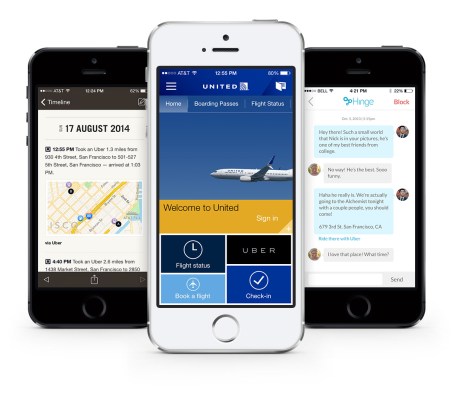So a quick side note that wasn’t really mentioned in today’s earlier coverage around Uber’s big API announcement this morning: The on-demand transportation company will bar developers who are interested in using its API from integrating with competing services.
Uber apparently declined to go into detail about the exclusive terms of its API when it spoke with the press before the announcement. The Wall Street Journal reported that “different financial arrangements are being made with different partners,” but makes it no mention of exclusivity.
At Re/code, meanwhile, Kara Swisher wrote, “It is also not clear if the deals with its initial partners are exclusive — meaning Uber demanded that rivals like Lyft not be offered to a partner’s users and integrated into its app.”
If you check out the Uber API’s Terms of Use, however, they expressly forbid developers from adding competitive services to their applications. The relevant section is as follows:
You may not use the Uber API in any manner that is competitive to Uber or the Uber Services, including in connection with any application, website or other product or service that also includes, features, endorses, or otherwise supports in any way a third party that provides services competitive to Uber’s products and services, as determined in our sole discretion.
The demand for exclusivity probably isn’t terribly surprising considering how competitive the current market is. It’s clear that being the first company in the space to release an API could be a huge advantage for the service, as doing so quite literally gets it in the hands of millions of new users.
The terms of its API also means that for many developers, Uber will be the only service of its kind that makes it into their apps. After all, any developers who embed Uber into their apps now are tacitly agreeing not to work with competitive services in the future, whether or not they provide a comparable feature set.
We knew that the release of the API would be bad news for other transportation companies like Lyft, which doesn’t currently have a public API. However, the news looks even worse when you consider that when and if it does make one available, the company could be blocked out of any apps that had previously done an Uber integration.
An Uber spokesperson issued the following statement: “The terms and conditions speak for themselves. All relevant guidelines are available on our website.”
